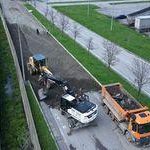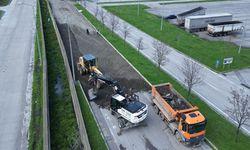Observe the intricate details of Turkish trucking culture, where each journey carries a story shaped by rich traditions and modern trends. The distinctive truck designs, often adorned with vibrant art and local craftsmanship, showcase the pride of drivers. This visual appeal serves not just as decoration but as a statement of identity and profession.
Consider the role of community gatherings, where truckers share experiences, tips, and stories that strengthen their bonds. Events like trucking festivals highlight not only the machinery but also the camaraderie among drivers and their families. These occasions provide insights into the values that underpin this culture, revealing a deep-seated respect for the profession and an appreciation for hard work.
Incorporate your understanding of the evolving logistics industry, where Turkish trucking adapts to technological advancements and global demands. The shift towards eco-friendly practices and the integration of telematics systems reflect a commitment to sustainability. As Turkey continues to expand its trade networks, these trends reshape the industry’s future, blending tradition with innovation.
Understanding the Significance of Trucking in Turkey’s Economy

Trucking plays a critical role in Turkey’s economy by facilitating trade and connecting diverse regions. The logistics sector, powered predominantly by trucking, serves as a backbone for both domestic and international commerce. Investment in this area enhances infrastructure and promotes economic growth.
Turkey’s geographical position as a bridge between Europe and Asia positions it uniquely for trade. The trucking industry supports more than 90% of freight transport in the country. This impressive statistic highlights its dominance and necessity in the transportation sector.
A closer look at the trucking industry reveals various key factors influencing its significance:
| Factor | Description |
|---|---|
| Employment | Trucking provides jobs for thousands, directly supporting families and local economies. |
| Trade Facilitation | Efficient trucking operations streamline the movement of goods, contributing to increased trade volumes. |
| Infrastructure Development | Investment in roads, bridges, and logistics hubs enhances overall connectivity and efficiency. |
| Regional Development | Regional economies benefit from improved access to markets, aiding growth in less developed areas. |
| Export Growth | Trucking supports Turkish exports, making it easier for businesses to reach international markets. |
Adaptation to modern technologies enhances efficiency within the trucking sector. Smart logistics solutions, such as tracking systems and route optimization software, reduce costs and improve service delivery. Embracing technological advancements positions Turkish trucking to meet growing demands.
Fostering partnerships between private companies and government bodies can further strengthen the industry. Collaborative efforts focused on improving regulations, safety standards, and training programs will lead to better service reliability and performance across the board.
In conclusion, understanding the trucking industry’s integral role in Turkey’s economy highlights its contributions to employment, trade, and infrastructure development. Prioritizing investments and technological advancements in this sector can lead to sustained economic benefits for the entire country.
Daily Life and Routine of Turkish Truck Drivers

Turkish truck drivers follow a structured daily routine that balances long hours on the road with essential breaks and social interactions. Start the day early; most drivers wake up before dawn to prepare for the busy schedule ahead.
Mornings
- Breakfast is a vital part of their routine, often consisting of traditional Turkish foods like simit or menemen, accompanied by strong tea or coffee.
- Before setting off, drivers perform vehicle checks to ensure safety and operational efficiency, inspecting tires, brakes, and lights.
- Loading takes place early, especially for long hauls, allowing drivers to maximize their travel time.
On the Road
- Drivers typically cover 600 to 800 kilometers a day, depending on routes and regulations.
- Frequent breaks are crucial; drivers stop every few hours for rest and to stretch, countering fatigue.
- Social interactions through mobile apps or CB radios keep spirits high while on long stretches of highway.
During longer trips, drivers often stay overnight at designated truck stops. These locations provide amenities such as showers, restaurants, and rest areas.
- At truck stops, they enjoy hearty meals and catch up with fellow drivers, sharing tips and experiences.
- Some drivers even park their trucks to experience local dining and culture during their brief stops.
Understanding their routine highlights the resilience required to thrive in this profession. Balancing work demands with personal health and community ties shapes the life of Turkish truck drivers.
Cultural Symbols and Decorations on Turkish Trucks

Turkish trucks showcase a rich array of cultural symbols and decorations that reflect the identity and values of their owners. These embellishments serve more than an aesthetic purpose; they communicate personal beliefs, regional pride, and craftsmanship.
Popular Symbolic Themes
- Religious Symbols: Many truck owners prominently display symbols such as the crescent moon and star, representing Islam, or Quranic verses. These elements not only convey faith but also invoke protection during travels.
- Floral Designs: Traditional floral patterns are common, often inspired by Turkish art and folklore. These intricate designs bring a touch of nature to the vehicles, symbolizing beauty and growth.
- Animal Imagery: Trucks frequently feature animals like the wolf or eagle, symbolizing strength and courage. These representations connect to historical narratives and national pride.
Decoration Techniques
- Hand-Painted Art: Many drivers prefer hand-painted designs, which showcase individual artistry. These unique creations highlight the owner’s personal touch and often tell a story.
- Stickers and Vinyl Wraps: Using colorful stickers is a modern approach that allows for easy customization. This method lets truck owners switch designs quickly and frequently, reflecting trends and personal tastes.
- Traditional Carpets and Textiles: Some trucks incorporate textile decorations, with rugs or fabrics displayed inside the cab. These items add comfort and cultural significance, acting as a nod to traditional Turkish craftsmanship.
These decorations not only beautify the vehicles but also create a connection between the truck and its driver. By choosing specific symbols and styles, truck owners express their individuality and heritage within the trucking community.
Impact of Regional Differences on Trucking Practices in Turkey

Regional variations significantly shape trucking methods across Turkey. Different geographical and cultural factors lead to distinct practices. For instance, in coastal regions, trucks often transport agricultural products like citrus fruits and olives, necessitating temperature-controlled vehicles for freshness maintenance.
Aegean and Mediterranean Regions
In these areas, trucking companies prioritize speed and efficiency in delivering perishable goods. The use of mobile tracking systems helps ensure timely deliveries, allowing businesses to respond quickly to market demands. Companies often collaborate directly with local farms to streamline the supply chain and reduce costs.
Eastern Anatolia and Southeastern Regions
In contrast, trucking in Eastern Anatolia and Southeastern regions focuses on transporting minerals and textiles. The rugged terrain poses challenges, encouraging drivers to adopt specific techniques for safe navigation. On the other hand, local regulations require trucks to comply with strict safety standards, influencing vehicle choices and maintenance practices.
| Region | Main Cargo | Key Practices |
|---|---|---|
| Aegean | Citrus, Olive Oil | Temperature Control, Timeliness |
| Mediterranean | Agricultural Products | Mobile Tracking, Direct Farm Partnerships |
| Eastern Anatolia | Minerals | Terrain Navigation Techniques, Safety Compliance |
| Southeastern | Textiles | Safety Standards, Vehicle Maintenance |
Understanding these regional differences allows trucking businesses to adapt their operations effectively. Customizing logistics strategies based on local needs enhances competitive advantage and customer satisfaction. This localized approach not only fosters community ties but also optimizes the entire supply chain.
Safety Regulations and Challenges Faced by Turkish Truck Drivers
Turkish truck drivers must adhere to strict safety regulations. They must regularly inspect their vehicles and ensure they comply with road safety standards. Regular checks on brakes, lights, and tires are mandatory before starting any journey. Additionally, drivers need to use tachographs to monitor their driving hours and breaks. Adhering to these regulations helps prevent fatigue-related accidents.
Common Challenges
One significant challenge faced by truck drivers is poor road conditions. Many routes in Turkey are affected by potholes or insufficient signage, leading to accidents or vehicle damage. Drivers often have to adjust their routes and driving speeds, impacting delivery schedules. Another issue is the lack of adequate rest areas. This situation forces some drivers to park in unsafe locations, increasing their risk of theft or other dangers.
Regulatory Support and Resources
While regulations provide a framework for safety, support from authorities can enhance compliance. Providing more roadside assistance and improving infrastructure can alleviate many challenges drivers encounter. Encouraging educational programs about safety regulations can also empower drivers to prioritize their well-being while on the road. Overall, a collaborative effort between drivers, transportation companies, and governmental bodies is essential for fostering safer driving conditions in Turkey.
Role of Technology in Modern Turkish Trucking Operations
Adopting advanced fleet management software significantly boosts operational efficiency in Turkish trucking. These systems allow companies to monitor vehicle locations in real-time, enabling precise delivery scheduling and reduced fuel costs. By integrating GPS tracking, businesses can optimize routes, minimizing travel time and enhancing customer satisfaction.
Implementing telematics systems is another key aspect for businesses aiming to improve performance. Telematics captures data on vehicle usage, driver behavior, and maintenance needs. This data-driven approach helps identify areas for improvement, reduces maintenance costs, and enhances driver safety through real-time feedback.
The use of mobile apps simplifies communication between drivers and dispatchers. These tools facilitate swift updates on delivery status and route changes, ensuring that all parties are informed and aligned. With quicker feedback loops, businesses can respond effectively to challenges on the road.
Moreover, automated inventory management systems streamline operations by providing accurate stock levels. These systems integrate with logistics platforms to predict demand and manage supply chains effectively. Keeping the right amount of inventory on hand reduces costs and enhances service levels.
Electric vehicles (EVs) are gaining traction within the Turkish trucking sector. Companies investing in EV technology benefit from lower fuel expenses and reduced emissions. As charging infrastructure expands, the adoption of EVs promises to reshape operational costs and environmental impact.
Artificial intelligence (AI) plays a transformative role in data analytics, providing insights into market trends and customer preferences. This information empowers businesses to tailor their services according to market demands, maintaining competitiveness.
In summary, modern Turkish trucking leverages technology not just for operational efficiency but also to drive innovation and sustainability. Embracing these technological advancements is crucial for companies aiming to thrive in an increasingly competitive market.
Training and Licensing Requirements for Turkish Truck Drivers
To become a truck driver in Turkey, candidates must undergo specific training and obtain the necessary licenses. The first step is completing a driving education program at an accredited driving school, focusing on both theoretical knowledge and practical skills related to heavy vehicle operation.
Driving License Categories
Turkish law categorizes driving licenses into different classes. For truck drivers, the essential licenses include Class C for vehicles over 3.5 tons and Class CE for vehicles that require a trailer or semi-trailer. Candidates must pass both a written exam and a practical driving test to receive these licenses. It’s recommended to prepare thoroughly for the theoretical test, covering traffic regulations, safety protocols, and basic vehicle maintenance.
Continuous Professional Development
Once licensed, drivers must engage in continuous education. Regular refresher courses are essential for keeping up with new regulations, safety practices, and technology changes in the trucking industry. Additionally, drivers should participate in training that enhances their skills in areas such as defensive driving, fatigue management, and emergency response techniques.
Networking and Community Among Turkish Truck Drivers
Joining a trucking association is a great way to connect with other drivers. These associations often host events, provide training sessions, and facilitate discussions about industry developments. Participating in these gatherings fosters relationships and a sense of belonging within the community.
Utilizing Social Media Platforms
Engaging with fellow drivers on social media platforms can enhance networking opportunities. Groups on Facebook or forums dedicated to trucking topics allow drivers to share tips, experiences, and resources. Regularly posting questions or helpful advice can strengthen these connections.
Local Meetups and Truck Stops
Visiting local truck stops and cafes encourages face-to-face networking. Many truck drivers frequent the same stops, making it easier to strike up conversations and exchange information. Consider joining informal meetups or discussions at these locations to build camaraderie.
Moreover, sharing experiences can lead to collaborative opportunities, such as forming load-sharing agreements or advice on routes and regulations. This community-oriented approach creates a support network that benefits all drivers involved.
Exploration of Truck Stops and Rest Areas in Turkey
For truck drivers traversing Turkey, identifying the best truck stops and rest areas significantly enhances the travel experience. Here’s a guide to some of the most noteworthy locations where drivers can rest, refuel, and recharge.
Consider the following popular truck stops:
-
Gölbaşı Truck Stop (Ankara): A well-equipped facility featuring ample parking space, clean restrooms, and a restaurant offering traditional Turkish dishes. The stop is known for its friendly staff and quick service.
-
Çorlu Rest Area (E-5 Highway): With convenient access to major highways, this rest area provides comfortable lounges and a playground for families. It includes shops for snacks and refreshments.
-
Bursa Truck Stop: This stop stands out due to its large parking area suitable for big rigs. Drivers can enjoy a variety of meals, including fresh seafood, and relax in designated resting zones.
-
İzmit Rest Area: Positioned strategically along the O-4 motorway, it features a 24-hour café and shower facilities. The area is praised for its cleanliness and service.
Access to amenities makes these stops more than just a necessity. Most facilities include:
- Free Wi-Fi
- Fuel stations with competitive prices
- Small shops selling daily essentials
- Vehicle repair services
Driver interactions at these stops can share insights into local culture and tips. Engaging with others fosters a sense of community, and local establishments often showcase traditional Turkish hospitality.
For truckers planning long routes, frequent breaks at these locations can enhance safety and performance by promoting rest. Prioritizing stops with reviewed services ensures a more pleasant experience on the road.
Stay informed about seasonal promotions and special offers at different truck stops. Many establishments host events or discounts that enhance the experience for drivers during specific times of the year.
Utilizing apps and social media can also help to stay updated on truck stops, their services, and driver reviews, facilitating better choices while on the move. Always plan ahead, especially on busy routes, to secure a suitable place to rest.
Environmental Considerations in Turkish Trucking Practices
Promoting eco-friendly practices in Turkish trucking is essential. Begin by adopting fuel-efficient vehicles. Trucks with modern engines and advanced technology reduce emissions significantly, contributing to cleaner air. Prioritize regular maintenance to ensure that vehicles operate at peak performance, which directly impacts fuel consumption.
Implementing a route optimization system helps minimize distance and fuel usage. Utilizing GPS technology can facilitate efficient navigation, reducing idle time and enhancing overall fuel economy.
Train drivers on eco-friendly driving techniques. Skills such as smooth acceleration and deceleration can lead to fuel savings of up to 10%. Encourage a culture of environmentally conscious driving among truck operators.
Integrating renewable energy sources at logistics centers is another effective step. Solar panels can power operations and charge electric vehicles, offering a sustainable alternative as the industry shifts towards greener solutions.
Participate in environmental certification programs. These initiatives not only bolster a company’s reputation but also showcase a commitment to sustainability, attracting clients who prioritize eco-friendliness in their supply chain.
Engage in collaborations with local governments and environmental organizations. Working together on initiatives such as tree planting or community clean-ups can enhance community relations and improve the overall environmental footprint of trucking businesses.
Finally, staying informed about emerging regulations and technologies in environmental conservation keeps trucking companies ahead of compliance and ready to adapt to new standards.
Future Trends Shaping the Turkish Trucking Industry
Invest in technology to enhance logistics efficiency. Many trucking companies are adopting GPS tracking and digital route optimization tools. These innovations significantly reduce fuel consumption and delivery times, positioning businesses ahead of competitors.
Focus on sustainability. The shift towards eco-friendly practices reveals an increasing demand for electric and hybrid trucks. Consider partnering with manufacturers who specialize in green technology to stay relevant in an environmentally conscious market.
Leverage automation. The introduction of automated vehicles and AI-driven logistics platforms streamlines operations. Embrace these advancements to improve safety and productivity, while also reducing labor costs.
Enhance driver training programs. With a growing emphasis on road safety and efficiency, companies should invest in comprehensive training that focuses on both operational skills and the latest technology. This approach not only increases worker satisfaction but also enhances performance.
Cultivate strong partnerships. Collaboration with other businesses within the supply chain can lead to increased efficiency and shared resources. Look for strategic alliances that foster collaborative warehousing and distribution approaches.
Monitor regulatory changes. Stay abreast of local and international regulations affecting the trucking industry. Compliance with evolving laws regarding emissions and safety standards can hinder or help business operations.
Adopt data analytics. Analyzing operational data allows for informed decision-making and trend identification. Use insights from data to improve route planning, maintenance schedules, and customer service strategies.
Expand service offerings. Diversify by providing additional services such as temperature-controlled transport or expedited shipping options. Meeting various customer needs can enhance overall competitiveness in the market.
Women in Turkish Trucking: Breaking Barriers and Stereotypes
Women are reshaping the Turkish trucking industry by stepping into roles traditionally dominated by men. This shift challenges long-standing stereotypes and promotes inclusivity in a male-centric field. Many women drivers now excel in various sectors, from long-haul transport to logistics management.
Empowering Stories of Female Drivers
Meet Aylin, a 36-year-old truck driver from İzmir. After spending years working as a logistics coordinator, she decided to pursue driving, inspired by the freedom it offers. Aylin emphasizes the importance of strong support from her family and the camaraderie she has found among fellow female drivers. Their shared experiences create a supportive network that empowers and motivates them.
Challenges and Solutions
Despite the progress, women in trucking face unique obstacles, including safety concerns and work-life balance. Companies are beginning to address these issues by implementing safer working conditions and flexible scheduling options. Training programs specifically designed for female drivers aim to build confidence and skills while promoting gender diversity in the workforce.
As more women join the ranks of truck drivers, they inspire future generations to pursue careers in this field, showcasing that passion and dedication can break down barriers. This movement not only enriches the trucking community but also contributes to a broader societal change.
Video:
Exploring Turkey Before My Offshore Adventure || Turkey travel vlog 2025
Exploring Turkey Before My Offshore Adventure || Turkey travel vlog 2025 by The Teesside Traveller 422 views 2 days ago 35 minutes
Q&A:
What are the key traditions associated with Turkish trucking culture?
Turkish trucking culture is rich in traditions that reflect the country’s history and values. One of the key traditions is the practice of decorating trucks with colorful and intricate designs. These decorations often include motifs from Turkish folklore, local scenery, and personal messages. Additionally, truck drivers often participate in gatherings or festivals where they showcase their vehicles and compete in various challenges. Loyalty and brotherhood among drivers are also significant aspects, with many forming close-knit communities that support each other on the road.
How has modern technology influenced trucking in Turkey?
Modern technology has significantly impacted the trucking industry in Turkey. The use of GPS systems has improved route planning, enabling drivers to find the fastest and safest paths. Additionally, online platforms for cargo matching have emerged, allowing truckers to connect with shippers more efficiently. Social media has also become a tool for drivers to share experiences and advice, helping to build a community among them. However, some traditional methods and practices still prevail, as many drivers retain a preference for personal connections and hands-on approaches.
What challenges do Turkish truck drivers face?
Turkish truck drivers encounter various challenges, including long hours on the road, unpredictable traffic conditions, and a lack of adequate rest areas. Safety concerns also arise due to poorly maintained roads and the risk of theft or damage to cargo. Additionally, drivers must navigate bureaucratic hurdles related to paperwork, permits, and regulations, which can vary significantly between regions. These factors can contribute to stress and fatigue, making it essential for drivers to maintain a healthy work-life balance.
Are there any unique practices among Turkish truck drivers that set them apart from those in other countries?
Yes, Turkish truck drivers have several unique practices. One notable practice is the ceremonial send-off, where family and friends often gather to bid farewell to drivers before long trips. Additionally, many drivers carry a small prayer flag or amulet in their trucks for protection during their journeys. Another distinctive aspect is the music played on the road, with many drivers favoring traditional Turkish songs or folk music, which they believe enhances their driving experience and keeps them energized. These cultural elements create a strong sense of identity among truck drivers.
What trends are shaping the future of trucking in Turkey?
The future of trucking in Turkey is being shaped by several trends. The increased focus on sustainability is prompting many companies to explore eco-friendly transportation options, including electric trucks and alternative fuels. Additionally, there is a growing emphasis on driver welfare, with companies implementing better working conditions and benefits. Automation is also beginning to make an impact, with advancements in autonomous vehicle technology on the horizon. These trends reflect broader global shifts in the industry, as Turkish trucking continues to adapt to contemporary demands while preserving its unique cultural heritage.
What are some key traditions in Turkish trucking culture?
Turkish trucking culture is rich with traditions that reflect the values and lifestyle of truck drivers in the region. One notable tradition is the decoration of trucks, where drivers often personalize their vehicles with colorful accessories, paintings, and even intricate patterns. This personalization is a form of self-expression and serves to represent the driver’s identity. Additionally, truck drivers often gather in social settings, sharing meals and stories, which fosters a sense of community and camaraderie among them. These gatherings may involve traditional Turkish food and music, reinforcing cultural bonds within the profession. Another tradition is the practice of hospitality; drivers are known to help each other with repairs and challenges on the road, creating an environment of mutual support.
How are modern trends influencing the trucking industry in Turkey?
Modern trends are significantly impacting the trucking industry in Turkey, primarily through advancements in technology and changes in regulations. The introduction of GPS tracking and telematics systems has revolutionized logistics management, allowing for improved route planning and fleet monitoring. This technological advancement not only increases efficiency but also enhances safety on the roads. Moreover, Turkish trucking companies are increasingly adopting environmentally friendly practices, such as utilizing fuel-efficient vehicles and exploring alternative energy sources, in response to global demands for sustainability. Additionally, regulatory changes regarding driver working hours and safety standards are shaping the way trucking operations are conducted, prompting companies to adapt their practices. The combination of these modern trends is leading to a more professional and accountable trucking culture in Turkey, reflecting a shift towards greater efficiency and responsibility.

















